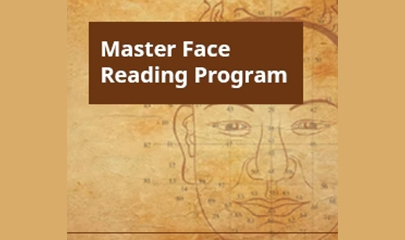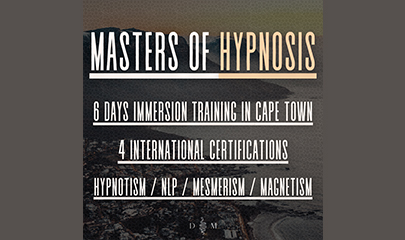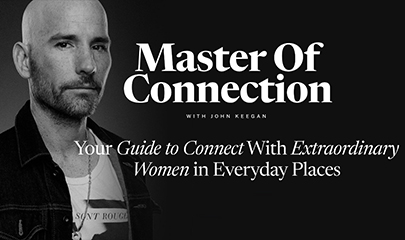Relationship Recovery For Men by Scott Paton
$5,00
Relationship Recovery for Men by Scott Paton – Instant Download!
Let’s embark on a captivating adventure to uncover remarkable insights that spark your curiosity and elevate your understanding
Relationship Recovery For Men by Scott Paton
Overview

Relationship Recovery for Men by Scott Paton
Recovering from a broken relationship, especially when addiction or emotional distress is involved, can feel like navigating an intricate maze. Many men find themselves yearning to rediscover the bonds they once held dear while simultaneously grappling with the complex emotions tied to love, trust, and vulnerability. In “Relationship Recovery for Men,” Scott Paton explores the multifaceted nature of relationship recovery, underscoring the importance of understanding one’s emotional landscape as well as the dynamics that have shaped personal interactions. This journey is not merely about reconciliation; it is about personal growth, empowerment, and forging a deeper connection with oneself and others.
In today’s world, where mental health and emotional well-being are gaining rightful attention, it becomes imperative to understand that relationship recovery is perhaps one of the most vital components in a man’s journey toward recovery either from addiction, trauma, or simply the heartbreak of losing a significant other. By prioritizing relationship recovery, individuals are given the opportunity to forge healthier, more meaningful connections that can withstand the unfolding challenges of life. Ultimately, this journey involves understanding personal triggers, engaging in effective communication, and learning how to rebuild trust and set healthy boundaries elements that are essential for a fruitful recovery.
Understanding the Need for Relationship Recovery
Recognizing the need for relationship recovery is often obscured by the emotional turmoil caused by betrayal, addiction, or communication breakdowns. Just as a ship needs repair after a storm, relationships require rebuilding after turbulent emotional experiences. Rather than viewing recovery as a sign of weakness, it should be perceived as an opportunity for growth and renewal. A relationship that may have seemed irreparably damaged can often be rebuilt, akin to a phoenix rising anew from the ashes.
Men facing the aftermath of a breakup or an emotional fallout may often feel detached, confused, and unsure of where to start. Like a complex puzzle scattered on a table, one must find the right pieces that fit together. The process of recovery may include reconciling different emotions like anger, guilt, and love, and ultimately, reaching a place of acceptance. The need for recovery also highlights the importance of introspection. By understanding one’s feelings and triggers, men can differentiate between healthy attachments and those rooted in dependency or anxiety.
Moreover, the prevalence of addiction or destructive behavioral patterns can act as a profound barrier to healthy relationships, leading to cycles of emotional voids and misunderstandings. Recognizing the impact of these addictions, whether they are substance-related or emotional dependencies, is critical for effective recovery. This understanding acts as a catalyst for change.
Key Aspects of Relationship Recovery:
- Emotional Acknowledgment: It is essential for men to confront and express their emotions. This step often begins the journey towards healing and understanding.
- Communication Restoration: Open channels of communication allow individuals to discuss their thoughts and feelings in a safe environment.
- Trust Rebuilding: Addressing breaches of trust is crucial, as regaining trust requires consistent and accountable behavior.
- Community Support: Utilizing support networks or community resources can enhance the recovery process significantly.
Recognizing the importance of these elements can create a positive framework for rebuilding broken relationships. The willingness to engage in the recovery process can manifest in healthier emotional management, improved communication, and ultimately, deeper connections with partners and oneself.
The Impact of Addiction on Relationships
Addiction leaves a profound scar on personal relationships, often leading to a cascade of emotional complications that affect both partners involved. Understanding these impacts can be akin to understanding the weather patterns before planning a journey. The clarity gained by examining the destructive nature of addiction is vital to navigate the road to recovery.
- Communication Breakdown: Communication is often one of the first casualties in relationships impacted by addiction. Secrecy and deception take the place of open dialogue, making it difficult for partners to express their concerns and needs. Trust takes a hit when honesty is compromised, leading to an uncomfortable silence that breeds resentment.
- Trust Issues: Addiction can sow the seeds of doubt, as promises made during active use are frequently broken. This inconsistency destroys faith in one’s partner, with trust becoming a rare commodity that takes years to rebuild.
- Emotional Toll: Partners of individuals grappling with addiction often experience emotional exhaustion. The pendulum swings between hope and disappointment creates a toxic dynamic, leaving loved ones feeling drained, helpless, and often resentful.
- Financial Strain: The financial burden associated with addiction can lead to additional stress within relationships. Whether it’s the direct costs of substance use or indirect costs like legal fees or therapy, financial pressures further destabilize the relationship.
- Codependency Dynamics: A common outcome in relationships affected by addiction is the emergence of codependent patterns. One partner may become excessively enmeshed in the other’s problems, often sacrificing their well-being in the process. This responsibility for the partner’s addiction can exacerbate tensions, leading to further difficulties as both individuals lose sight of themselves.
- Isolation: The tendency for individuals with addiction to isolate themselves can extend to their partners, who may feel excluded from social connections. This isolation breeds loneliness and creates barriers to establishing and maintaining supportive relationships.
By recognizing these impacts, individuals can better understand the specific areas in need of recovery. Each partner must engage in the recovery process intentionally, focusing on rebuilding trust, understanding one another’s triggers, and fostering effective communication.
Recognizing Patterns in Relationship Dynamics
Understanding relationship dynamics involves identifying recurring patterns that either support or hinder connection. Relationships often mimic waves sometimes calming, sometimes tumultuous. Examining these waves enables men to navigate their waters more effectively. Just as a sailor reads the wind and adjusts their course, recognizing patterns in relationship dynamics allows for timely adjustments.
- Common Patterns: Common relationship dynamics include cycles of engagement and withdrawal, communication breakdowns, and shifts in roles. For instance, one individual may become the caretaker while the other plays the role of the dependent partner. Recognizing these patterns is fundamental to understanding the dynamics at play.
- Indicators of Need for Recovery: Frequent arguments, emotional disconnection, or increasing withdrawal from communication are signs that a relationship is in distress. Ignoring these indicators can lead to further deterioration.
- Reflecting on Emotions: Emotional patterns often repeat themselves in relationships. Men should reflect on their emotional reactions, identifying triggers to understand their partner’s emotional state better and their reactions to it.
- Changing Dynamics: As relationships evolve, patterns may also shift, making it vital for both partners to remain conscious and aware of these changes. Adaptation and communication are crucial to overcoming potential rifts.
Comprehending these patterns affords individuals the opportunity to make informed choices, paving the way toward healthier interactions and a more stable foundation for recovery in relationships.
Emotional Triggers and Their Role in Recovery
Emotions serve as powerful indicators that guide our relationships. Recognizing these emotional triggers becomes essential for men in recovery, as it allows for proactive emotional management. An emotional trigger can be likened to a sudden thunderstorm; without warning, it can disrupt the calm and throw one off balance. Understanding how to navigate these storms is crucial for weathering the tumultuous journey of relationship recovery.
- Identifying Triggers: Emotional triggers stem from past experiences and may evoke strong emotional reactions. These triggers can result in frustration, defensiveness, or anger, often hindering productive conversations and conflict resolution.
- Impact on Relationships: When unrecognized, emotional triggers can escalate tensions. Men must practice self-awareness to navigate these reactions openly. Recognizing when one is triggered can provide opportunities for reframing the conversation constructively.
- Utilizing Emotional Awareness: Armed with knowledge of their triggers, individuals can utilize mindfulness techniques to manage responses. Techniques could include deep breathing, pausing before responding, or utilizing “I” statements to express feelings without blaming their partner.
- Communicating Triggers: Sharing emotional triggers with a partner fosters greater understanding and connection. This transparency cultivates an environment of compassion and empathy, allowing for more profound connection and healing.
By honing the ability to identify and manage emotional triggers, men can navigate the waves of emotion that often accompany relationship recovery, ultimately fostering healthier emotional dynamics with their partners.
Key Components of Relationship Recovery
Establishing a strong foundation for relationship recovery involves critical elements that contribute to healing and growth. Each component plays a vital role, akin to the beams and supports that hold a structure together.
- Acknowledgment: Both partners must recognize the impact of addiction or other relational challenges. Validating each other’s experiences fosters an environment ripe for healing.
- Open Communication: Effective communication lays the groundwork for transparent dialogue. Creating forums for heartfelt discussions can help both partners understand one another better.
- Building Trust: Trust must be slowly rebuilt through consistent behavior. Each partner must commit to being reliable and accountable in their actions.
- Professional Help: Therapy or counseling can provide structured support. Engaging a therapist specializing in relationship recovery can accelerate the healing process.
- Support Networks: Establishing a reliable support network ensures partners are not navigating recovery alone. Friends, family, or support groups can provide invaluable assistance.
- Commitment to Change: Recovery is a continuous process. Both individuals must demonstrate a commitment to personal and relational growth, responding positively to challenges.
As partners embrace these components, they can craft a nurturing environment for recovery. Understanding, empathy, and shared intentions can lay the groundwork for a stronger connection after hardship.
Establishing Trust and Honesty
Building trust and honesty is an integral aspect of relationship recovery. After the turbulent times that accompany addiction or emotional distress, these elements can serve as pillars for rebuilding a healthy connection. Establishing trust is akin to rebuilding a bridge after a flood; it requires care, attention, and a commitment to creating an unshakeable foundation.
- Building Trust: Trust flows from consistent actions over time. Each partner must commit to keeping promises and being transparent in their communications. When integrity is established, partners are more likely to feel secure in the relationship.
- Honesty: Honesty goes hand in hand with trust, promoting an open dialogue about feelings and motivations. When individuals in recovery are honest, partners can develop a sense of safety in sharing their own vulnerabilities.
- Communication: Effective communication serves as a vital tool in cultivating an atmosphere of trust. Engaging in constructive conversations about desires and fears creates an emotionally safe space for both partners.
- Self-Reflection: Individuals must engage in introspection to understand past actions and their effects on the relationship. This self-awareness encourages healthier communication practices moving forward.
- Supporting One Another: Partners committed to supporting each other’s recovery journeys can bolster emotional intimacy. This support acts as a source of strength during challenging times.
By investing time and effort into rebuilding trust and fostering honest communication, men can create the groundwork necessary for a revived and healthy relationship.
Developing Effective Communication Skills
Effective communication encompasses several key strategies that foster understanding and connection between partners. To illustrate, communication can be likened to a bridge that connects two shores; when well-constructed, it allows the smooth passage of thoughts and feelings. However, when communication breaks down, it may result in misunderstandings and emotional distance.
- Open Dialogue: Open and honest conversations prompt transparency in expressing thoughts, feelings, and needs. Engaging in candid discussions fosters trust and enhances emotional intimacy.
- Active Listening: Communication is not solely about speaking active listening is equally essential. Paying attention to the partner’s viewpoints and responding thoughtfully demonstrates empathy and concern.
- Using “I” Statements: Adopting an “I” statement approach can de-escalate conflicts. For example, stating “I feel hurt when…” emphasizes personal feelings rather than placing blame, promoting constructive conversations.
- Emotion Recognition: Recognizing and articulating emotions facilitates healthier interactions. This awareness creates opportunities for expressing vulnerability and fosters emotional resilience.
- Clarifying Feedback: Seeking clarification fosters understanding and minimizes miscommunication. By checking in with one another, partners can ensure they are on the same page, effectively reducing conflict.
Improved communication is central to building and maintaining relationships, especially during recovery. As men develop these skills, they can establish stronger emotional connections with their partners, leading to a more profound sense of intimacy and support.
Setting and Respecting Boundaries
Understanding and establishing boundaries is a crucial element in relationship recovery, particularly for individuals with past challenges regarding substance abuse or emotional struggles. Boundaries are akin to the walls of a home they create a safe space while defining the limits of acceptable behavior within relationships.
- Personal Needs Identification: Recognizing one’s needs is fundamental for establishing healthy boundaries. Individuals must understand what behaviors are acceptable and which are not, allowing them to prioritize their own well-being.
- Clear Boundary Communication: Once boundaries are identified, openly communicating them to partners fosters understanding and respect. Conversations about emotional availability, personal space, and acceptable behaviors create a foundation for mutual support.
- Mutual Respect: Both partners must commit to respecting one another’s boundaries. This commitment ensures personal dignity while fostering a sense of safety and trust in the relationship.
- Flexible Boundaries: Recognizing that boundaries may change over time creates space for evolving relationships. Open dialogue about shifting personal needs ensures both partners are aligned in their expectations.
- Resource for Growth: Healthy boundaries support personal growth. By enforcing boundaries and consistently respecting each other’s needs, partners cultivate understanding and strengthen their emotional connection.
Navigating the complexities of boundaries takes practice and patience. Establishing and respecting these limits allow for emotional safety, essential for a nurturing environment in which positive growth can take place.
Techniques and Strategies in Recovery
Navigating the recovery process effectively requires a blend of tried-and-true strategies tailored to personal needs. Below are several approaches that can significantly assist men in relationship recovery while fostering emotional resilience and growth.
- Mindfulness and Self-Awareness: Engaging in mindfulness practices can enhance self-awareness, allowing individuals to become attuned to their emotions and triggers. Techniques such as meditation and deep breathing can reduce anxiety and foster emotional balance.
- Positive Self-Reflection: Analyzing one’s thoughts and behaviors through journaling or structured self-reflection can yield insights about personal patterns and emotional responses. This self-awareness is invaluable for initiating change.
- Developing Coping Strategies: Men must establish healthy coping mechanisms to address stress and uncomfortable emotions. Activities like exercise, creative outlets, or engaging in hobbies can offer constructive channels for emotional release.
- Setting Realistic Goals: Establishing achievable goals keeps individuals focused and motivated while allowing for progress tracking. This perspective contributes to a sense of accomplishment and purpose within the recovery journey.
- Seeking Professional Support: Engaging in therapy offers structured guidance in navigating recovery challenges. Professional assistance can yield constructive strategies and emotional support, significantly enhancing the journey toward healing.
By integrating these techniques into their recovery process, men can lay the groundwork for healthier connections. Utilizing these approaches aids in establishing a foundation of resilience and adaptability.
Mindfulness and Self-Awareness Practices
Mindfulness and self-awareness practices are instrumental in the recovery process, providing individuals with essential tools to navigate emotional triggers and enhance resilience during challenging times. By cultivating these practices, men can foster growth and improve their relationships.
- Mindful Breathing: Practicing mindful breathing focuses attention on the present moment, helping to alleviate stress and anxiety. By concentrating on breath, individuals can cultivate a sense of calm and awareness, equipping them to handle emotional episodes more effectively.
- Body Scanning: This technique encourages individuals to scan their bodies for tension and discomfort, enhancing physical awareness. Becoming attuned to bodily sensations aids in recognizing emotional responses, enabling healthier coping strategies.
- Mindfulness Meditation: Engaging in meditation fosters increased self-awareness, allowing individuals to observe emotions and thoughts non-judgmentally. This practice contributes to healthier emotional management and emotional resilience.
- Practicing Being Present: Emphasizing presence in daily life encourages engagement in activities without distractions. By being mindful while eating, walking, or engaging in conversations, individuals can enhance their emotional connection with themselves and their partners.
- Self-Compassion Exercises: Practicing self-compassion promotes kindness toward oneself during times of struggle. Replacing self-criticism with supportive inner dialogues nourishes emotional healing and encourages vulnerability in relationships.
Incorporating these mindfulness practices into daily routines allows men to develop emotional intelligence and better manage their relationships, ultimately laying a robust foundation for recovery.
Engaging in Support Groups and Peer Counseling
Engagement in support groups and peer counseling significantly enhances recovery experiences for men. These avenues offer unique opportunities to connect with others, share experiences, and foster emotional growth.
- Support Groups Overview: Support groups provide a platform for shared experiences and encouragement among individuals facing similar challenges. This collective dynamic serves as a powerful source of emotional reinforcement and camaraderie.
- Peer Counseling Benefits: Peer counseling involves trained individuals facilitating discussions and offering insights based on personal experiences. The relatability found in these relationships nurtures a strong sense of community and understanding.
- Offering Emotional Respite: Participating in support groups can diminish feelings of isolation. Sharing stories can provide emotional relief, help alleviate guilt and shame, and foster connection with others who truly understand one’s struggles.
- Skill Development: Through engagement, individuals can develop coping skills and strategies essential for recovery. Learning from shared experiences allows members to acquire and adapt successful practices to their personal journeys.
- Building Accountability: Active participation in support groups creates a sense of accountability. Partners and peers may inspire one another to maintain commitment to recovery goals, fostering ongoing motivation and connection.
By harnessing the power of community through support groups and peer counseling, men can create networks of emotional support that significantly enhance their recovery journey.
Utilizing Professional Therapy Options
Therapy serves as a critical component in relationship recovery, offering structured support tailored to individual needs. Access to professional guidance can facilitate a profound shift in one’s emotional health, profoundly impacting relationships.
- Types of Professional Therapy: Various therapy modalities, such as Cognitive Behavioral Therapy (CBT) or Motivational Interviewing (MI), can address emotional challenges rooted in addiction or trauma. Each approach offers unique frameworks to empower individuals during recovery.
- Creating Safe Spaces: Engaging with a therapist fosters a relationship built on confidentiality and trust. This secure environment encourages individuals to explore vulnerabilities and emotional struggles more openly, laying the groundwork for recovery.
- Goal-Oriented Therapy: Professional therapy emphasizes establishing specific, measurable goals. This focus creates a roadmap for recovery, allowing clients to track progress and celebrate achievements along the way.
- Skill Development and Conflict Resolution: Therapists provide the tools needed for managing conflicts and enhancing communication. These skills are vital for nurturing healthier relationships while navigating recovery challenges.
- Integration and Support: Combining therapy with support groups offers a holistic approach to recovery. Professional insights enriched by shared experiences bolster emotional resilience and promote long-term success.
By prioritizing professional therapy, men can access the resources necessary to facilitate meaningful healing and foster connection with themselves and their partners.
Challenges in the Recovery Process
Recognition of the challenges that arise during the recovery process is paramount for effective resolution. Each setback provides an opportunity for growth, yet understanding and addressing these hurdles is critical for sustained recovery.
- Emotional Triggers: Men may encounter unresolved emotional triggers that lead to anxiety or defensiveness. These triggers can stem from past relationships and often surface unexpectedly, complicating recovery efforts.
- Self-Doubt and Guilt: Many men wrestle with self-doubt and feelings of guilt regarding their past actions. This negative inner dialogue can undermine recovery efforts, fostering low self-esteem and a reluctance to engage in rebuilding relationships.
- Lack of Support: Recovery can feel isolating, especially if friends or family offer minimal support. Hesitation to seek help may prolong feelings of loneliness and exacerbate self-defeating thought patterns.
- Fear of Vulnerability: Traditional societal norms often dictate that men should embody strength and stoicism, discouraging vulnerability. Overcoming these ingrained beliefs is essential for fostering authentic connections.
- Relapse: Setbacks are often an unfortunate reality in recovery. Relapsing can trigger disappointment, feelings of failure, and foster a sense of hopelessness, detracting from motivation.
- Pressure to Move On: Societal expectations can put pressure on men to quickly “move on” after breakups or trauma. Such pressures can minimize genuine feelings and impede the necessary healing process.
By acknowledging and addressing these challenges, men can develop resilience in dealing with the ups and downs of recovery. Adaptive coping strategies, open communication, and seeking support are vital in navigating these hurdles and emerging stronger.
Coping with Setbacks and Relapses
Navigating setbacks and relapses is a ubiquitous part of the recovery process. Developing adaptive coping mechanisms becomes essential for regaining composure and refocusing on the recovery journey.
- Acknowledge Feelings: It is imperative for men to accept and validate their feelings rather than suppress them. Journaling thoughts or confiding in a trusted friend can help in processing emotions.
- Professional Support: Engaging a therapist provides valuable assistance in coping with setbacks. Structured support can facilitate open conversations, allowing men to explore their feelings and develop action plans for moving forward.
- Establishing Networks: Cultivating a support network of friends or peers can alleviate feelings of loneliness. Sharing experiences in a safe environment fosters connection and reduces the burden of navigating setbacks alone.
- Practicing Self-Compassion: Learning to treat oneself kindly during times of struggle is critical. Recognizing that setbacks are part of the journey allows for emotional healing and minimizes feelings of shame.
- Developing Healthy Coping Mechanisms: Identifying constructive coping strategies such as yoga, meditation, or creative outlets can promote emotional resilience and prevent relapse. Engaging in positive activities nurtures mental well-being.
- Goal Setting: Setting realistic, achievable goals promotes motivation and allows individuals to celebrate progress. Building from small achievements fosters a sense of accomplishment and keeps recovery efforts on track.
- Learning from Experiences: Each setback can offer valuable lessons in self-awareness and emotional management. Reflecting on past challenges helps individuals anticipate future struggles and develop robust strategies for overcoming them.
Through patience and understanding, men can navigate setbacks and relapses effectively, steering their recovery journey toward empowerment and emotional growth.
Balancing Personal and Partner Needs
Striking a balance between personal and partner needs is vital in maintaining healthy relationships post-recovery. Navigating this equilibrium, particularly for individuals recovering from codependency, fosters mutual understanding and support.
- Awareness of Personal Needs: Individuals must recognize the significance of self-care and self-awareness in nurturing relationships. Prioritizing personal needs prevents feelings of burnout and fosters a sense of fulfillment.
- Communication as a Tool: Open dialogue fosters understanding of both partners’ needs. Using direct and heartfelt communication allows individuals to express their desires without fear of conflict or rejection.
- Boundary Setting: Establishing boundaries plays a crucial role in balancing needs. Individuals should learn to articulate personal limits clearly, promoting emotional safety for both partners within the relationship.
- Acknowledgment of Differences: Acceptance of differing needs and values is essential in navigating relationships. Understanding each partner’s unique background and emotional responses ensures mutual support and respect.
- Promoting Independence: Encouraging both partners to maintain their autonomy while fostering connection cultivates a sense of security within the relationship. This balance avoids the pitfalls of codependency.
- Self-Reflection: Engaging in self-reflection can help individuals assess their needs without compromising their partner’s well-being. This practice encourages growth and nurtures a healthy balance in relationships.
Navigating the delicate balance of personal and partner needs is an ongoing journey. With self-awareness and intentional communication, individuals can forge healthier relationships and foster long-term emotional stability.
Building Healthy Relationships Post-Recovery
Establishing healthy relationships post-recovery involves a multifaceted approach that emphasizes mutual respect, communication, and shared growth. As individuals strive to heal past wounds, fostering new connections requires intention and commitment.
- Embracing Supportive Relationships: Relationships serve as vital components of recovery, providing emotional reinforcement and encouragement. Positive relationships cultivate environments where personal growth and healing can thrive.
- Understanding Characteristics of Healthy Relationships: Healthy relationships are built on trust, equality, and open communication. Partners must feel safe expressing themselves without fear of judgment.
- Setting Boundaries: Clear boundaries keep individuals grounded while promoting respect for personal needs. Healthy boundaries ensure both partners have emotional space to grow while maintaining connection.
- Conflict Resolution Skills: Effective communication and conflict resolution skills strengthen the partnership. Learning to navigate disagreements calmly contributes to a more harmonious relationship.
- Engaging in Support Groups: Participation in support groups nurtures new friendships based on shared experiences. These connections can provide additional layers of support during the recovery process.
- Eliminating Toxic Relationships: Evaluating current relationships is essential to identify toxic dynamics. Toxic relationships can jeopardize recovery efforts, making it crucial to distance oneself from detrimental influences.
- Promoting Incremental Change: Celebrating small milestones fosters motivation and reinforces a sense of partnership. Partners should acknowledge progress, enhancing emotional intimacy and connection.
By integrating these elements, men can build healthy, fulfilling relationships that complement their recovery journeys. Through commitment and intentionality, they can establish deep emotional connections that empower and uplift.
Encouraging Positive Relationship Dynamics
Encouraging positive relationship dynamics is key to maintaining emotional health and connection post-recovery. These dynamics foster supportive interactions and enhance mutual understanding.
- Setting Shared Goals: Partnering to create shared goals for personal and relational growth lays the groundwork for teamwork. This shared vision galvanizes commitment and fosters a sense of unity in facing challenges.
- Strengthening Commitment: Pursuing shared goals strengthens the commitment between partners. Joint efforts bolster connections, offering motivation and support through tough times.
- Providing Motivation: Supporting one another through the recovery process nurtures motivation. When partners encourage each other, it fuels perseverance during obstacles, reducing the likelihood of relapse.
- Increasing Self-Esteem: Celebrating shared successes cultivates self-esteem for both partners. Positive reinforcement encourages growth and uplifts the emotional environment within the relationship.
- Fostering Constructive Conflict Resolution: Positive relationship dynamics include effective conflict resolution practices. Learning to engage in constructive conversations without hostility promotes emotional security and mutual respect.
By fostering these dynamics, partners can create healthy relationships imbued with connection and understanding. The integration of shared goals, encouragement of mutual support, and the practice of positive communication ensure a resilient partnership.
Importance of Shared Goals and Support
By transcending personal boundaries to establish shared goals, partners can effectively strengthen their bonds and facilitate recovery. The integration of mutual support serves as the backbone for relationship stability.
- Unified Direction: Shared goals provide both partners with a roadmap toward recovery. This alignment creates a sense of teamwork critical for navigating life’s unpredictable waters.
- Commitment Reinforcement: Pursuing shared objectives enhances commitment within the relationship. This collaborative focus elevates emotional investment, nurturing a shared sense of purpose.
- Motivation Booster: Positive relationships grounded in shared goals motivate partners to persist through difficulties. Each partner’s support becomes a source of strength that enhances resilience.
- Elevating Self-Esteem: Celebrating shared successes cultivates a positive self-image and reinforces the partnership. Recognizing progress fosters mutual appreciation and solidifies connections.
- Strengthening Trust: The commitment embodied in shared goals fosters trust. This trust enhances open communication and reassures partners of the safety within their relationship.
Recognizing and fostering shared goals is key to building enduring emotional connections post-recovery and supporting individual growth.
Recognizing and Celebrating Progress
Acknowledging and celebrating achievements along the recovery journey is a powerful tool for reinforcing positive relationship dynamics. Recognizing milestones and progress not only bolsters individual confidence but deepens emotional connections between partners.
- Milestone Acknowledgment: Recognizing significant milestones, such as sobriety anniversaries or personal achievements, creates shared moments of joy and fulfillment. Celebrating these occasions reinforces the bond between partners.
- Encouraging Positive Reinforcement: Celebrating progress serves as a profound form of affirmation. Positive reinforcement nurtures motivation and encourages partners to persist through challenges, diminishing self-doubt.
- Fostering Resilience: Reflecting on successes equips partners with resilience when facing setbacks. Each achievement serves as evidence of personal growth and strengthens the partnership.
- Cultivating Gratitude: Regular recognition of progress fosters gratitude between partners. Acknowledging each other’s efforts creates a culture of appreciation, instilling a nurturing atmosphere for emotional growth.
By making the celebration of progress integral to the recovery journey, individuals cultivate an enriched emotional landscape within their partnerships.
Resources and Support Systems
Resources and support systems are essential for individuals navigating the challenges of relationship recovery. The following overview provides valuable insight into resources conducive to growth and connection.
- Books:
- “The Relationship Cure” by Dr. John M. Gottman: This book provides practical strategies for enhancing communication and understanding in relationships.
- “Hold Me Tight: Seven Conversations for a Lifetime of Love” by Sue Johnson: This work explores emotional connection, offering tools for strengthening relationships.
- “Attached: The New Science of Adult Attachment and How It Can Help You Find and Keep Love” by Amir Levine: This book examines attachment styles and how they influence relationships, providing vital insights for recovery.
- Online Communities:
- LoveShack.org: This platform offers interpersonal relationship advice, enabling individuals to share concerns and glean insights from others’ experiences.
- Reddit: Various subreddits dedicated to relationship dynamics and recovery provide spaces for peer support.
- Therapy and Counseling:
- Engaging professional therapists specializing in relationships can offer tailored guidance and support through the recovery process.
Recommended Reading and Materials
Recommended reading materials provide foundational insights for navigating the intricacies of relationship recovery. Here are key titles that emphasize various aspects of emotional health and connection:
- The Five Love Languages by Gary Chapman: This book explores the different ways individuals express and receive love, aiding in developing more profound connections.
- How Can I Get Through To You? Closing the Intimacy Gap Between Men and Women by Terrance Real: This work highlights the emotional gaps often present in relationships, offering strategies for bridging those divides.
- Mating in Captivity by Esther Perel: Perel investigates the complex relationship between intimacy and desire, providing insights applicable to nurturing romantic connections.
Online Communities and Forums
Accessing online communities and forums can foster invaluable connections and support during the recovery journey. Here are several resources to consider:
- LoveShack.org: Engage in discussions regarding personal conflicts, dating, and relationship dynamics to receive support from others navigating similar struggles.
- 10% Happier by Dan Harris: This app features guided meditations and podcasts addressing varied emotional health themes, including recovery and relationships.
- The Recovery Assistance Blog: This platform offers insights on various topics related to recovery, facilitating connections between individuals who share similar experiences.
Workshops and Training Programs
Workshops and training programs often offer a direct opportunity for personal growth and skill enhancement around recovery and relationships. Here are several options to explore:
- The Gottman Institute: Offers workshops focusing on understanding relationship dynamics, improving communication, and building emotional intimacy.
- Mindfulness-Based Stress Reduction (MBSR): Local centers often offer MBSR programs that can assist individuals in developing mindfulness skills that benefit emotional well-being.
Conclusion
Navigating relationship recovery is a profound journey that requires commitment, empathy, and understanding. As discussed in Scott Paton’s “Relationship Recovery for Men,” the process involves recognizing the need for healing, understanding emotional triggers, and fostering effective communication. Throughout this journey, individuals have the opportunity to rebuild trust, develop coping strategies, and ultimately create healthier, more meaningful connections with their partners.
By embracing the principles outlined in this framework, men can cultivate resilience and empowerment as they progress through the ups and downs of recovery. The key components of relationship recovery including establishing trust, setting boundaries, and engaging in support networks provide the foundation for sustainable growth.
Through consistent effort and a willingness to reflect and adjust, individuals can emerge from the recovery process with stronger emotional resilience and the ability to forge bonds that withstand life’s challenges. The journey toward recovery is not a solitary one; by fostering connections that uplift and support, men can cultivate both personal growth and fulfilling relationships.
Frequently Asked Questions:
Innovation in Business Models: We use a group purchase approach that enables users to split expenses and get discounted access to well-liked courses. Despite worries regarding distribution strategies from content creators, this strategy helps people with low incomes.
Legal Aspects to Take into Account: Our operations’ legality entails several intricate considerations. There are no explicit resale restrictions mentioned at the time of purchase, even though we do not have the course developers’ express consent to redistribute their content. This uncertainty gives us the chance to offer reasonably priced instructional materials.
Quality Control: We make certain that every course resource we buy is the exact same as what the authors themselves provide. It’s crucial to realize, nevertheless, that we are not authorized suppliers. Therefore, the following are not included in our offerings: – Live coaching sessions or calls with the course author.
– Entry to groups or portals that are only available to authors.
– Participation in closed forums.
– Straightforward email assistance from the writer or their group.
Our goal is to lower the barrier to education by providing these courses on our own, without the official channels’ premium services. We value your comprehension of our distinct methodology.
Be the first to review “Relationship Recovery For Men by Scott Paton” Cancel reply
You must be logged in to post a review.

 ALA All In DIY 800 Plus Credit Restoration Bundle By Myala - American Legacy Association
ALA All In DIY 800 Plus Credit Restoration Bundle By Myala - American Legacy Association  The Freedom Lab By Club Life Design
The Freedom Lab By Club Life Design  Master Face Reading Program By Lillian Pearl Bridges
Master Face Reading Program By Lillian Pearl Bridges  Financial Modelling Course By Liam Bastick
Financial Modelling Course By Liam Bastick 

















Reviews
There are no reviews yet.